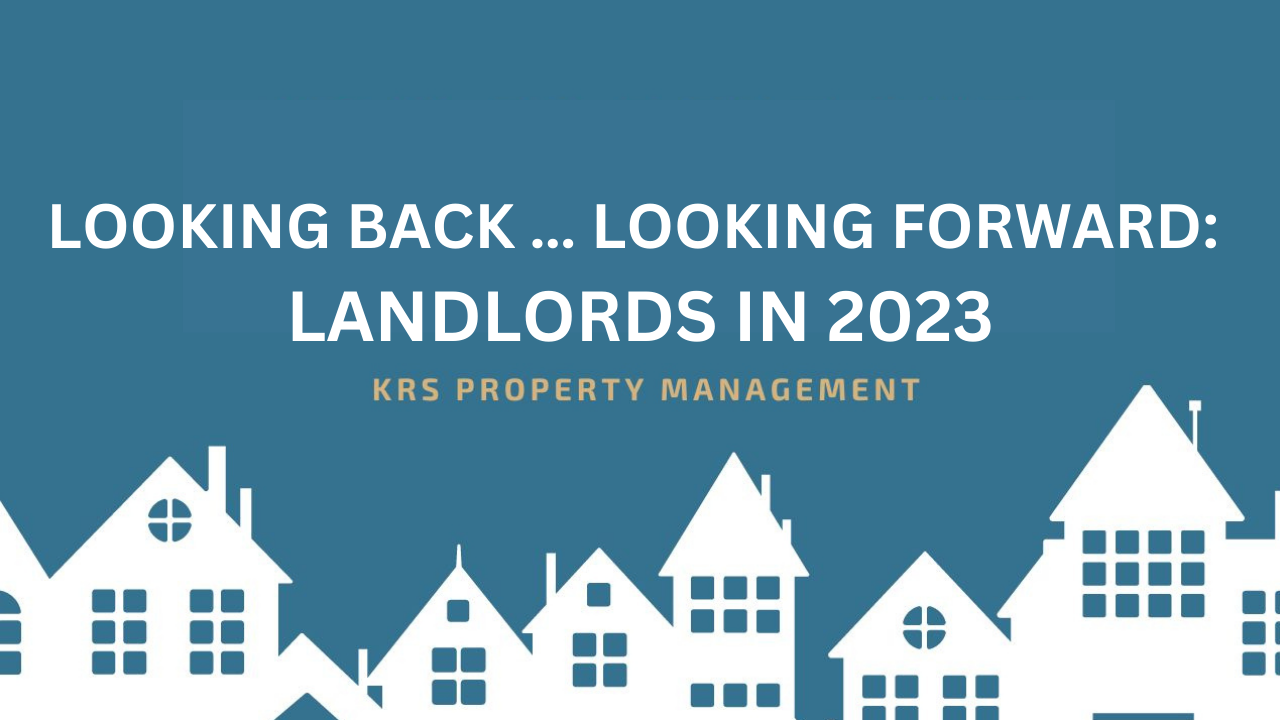
As we come to the end of 2022, let’s review the past 12 months as it relates to the world of residential real estate investing … and then a cautious peek at what the upcoming year may hold.
All with the objective to maximize residential rental profits in 2023 … that means rent with an ROI!
A Glance in the Rear-view Mirror
In hindsight, my vision for 2022 was on the money. In a series of 3 articles, I expressed my conviction that wage inflation would be a significant element in driving price increases as businesses pass added payroll costs on to consumers. That proved to be the case.
Growth in home prices was as the experts predicted and as we reported.
In our December 2021 issue, we envisioned rapid inflation in 2022 while 30-year mortgage rates were in the 3-4% range. Our recommendation … real estate investors may profit in the near-term by purchasing or refinancing an investment property to lock in historically low long-term rates … sure to increase as inflation persists. That was shown to be an accurate assessment.
We reported forecasts of anticipated Q4 2022 average 30-year fixed mortgage rates by the Mortgage Bankers Association and Fannie Mae. Their predictions were in the 3½ to 4% range. History delivers the truth at an unforeseen 7-percent!
Our forecasts of basis points jumps by the Fed were correct.
A Peer Into the Upcoming Year
First, I stand by my assertion in our November 2022 issue … there are two residential rental investors’ opportunities in the upcoming year for landlords positioned to invest now:
- Negotiate reduced purchase prices to compensate for the increased cost of borrowing.
- As inflation fades, refinance at a lower rate.
Now some considerations that will drive 2023 residential rental investors' decision-making.
Heads-up From the Fed
Excerpts from Chairman Powell’s Speech, 11/30/22 (slightly edited summary in italics)
Let's sum up this review of economic conditions that we need to see to bring inflation down to 2 percent.
- Housing services inflation will probably keep rising well into next year.
- The labor market … wage growth remains well above levels consistent with our goal of 2 percent inflation.
- We have a long way to go in restoring price stability … we will stay the course until the job is done.
- Powell has been asked whether he anticipated a soft landing or recession in 2023 … in May he said there was a “good chance” for a soft landing; last month he said that likelihood had “narrowed”.
- A Federal Reserve Bank of Dallas forecast indicates year-over-year rental price growth will rise from 5.8%, as of June 2022, to 8.4% as of May 2023.
Tenant Employment Trends
At the beginning of the pandemic, layoff casualties were virtually anyone whose job required in-person functions … retail, leisure and hospitality workers were hardest hit. The post-pandemic employment world is now in short supply of these workers and is aggressively pursuing hiring quality employees.
In contrast, there has been an about-face in employment by “white-collar” employers. The increased uncertainty of recession has convinced a growing number of companies that they need to pull in their horns. In recent months, there has been a slowdown or hiring freeze in tech, IT and media industries … as well as business services; employment jobs; administrative support roles; and finance.
So, as landlords we must be aware of the changing economic profiles of existing and prospective renters. It will impact your tenant retention and new applicant screening … ultimately reflected in your 2023 bottom-line.
Landlords: Play Rent Offense & Defense in 2023
Inflation positively impacts rent increases to keep pace with rising expenses and maintain your rental properties. The balancing act is to retain quality tenants and attract equally valuable replacements to keep pace with inflation and ideally maintain an attractive ROI.
In contemplating rent increases, two things affect renters' ability to pay: 1) Inflation stretches the family dollar across many living expense necessities; 2) There is no sign of financial relief from DC.
Offense: Tenant Retention
Whenever a tenant leaves a property, the average cost of a turnover is two months’ rent not including the lost rent during the vacancy. So, proactive moves to retain a desirable tenant are paramount. Here are three to consider:
- Raise rent: Research comparative rents for rental units like yours in the neighborhood. Then be cautious about the percentage of increase you intend to ask for. A rule of thumb is not to exceed 5% per year … and no more than the rate of inflation. Raising rent to the level you desire in manageable increments over a year or more may persuade a desirable tenant to stay with you.
- Extend the lease at the same rent: Doing so ensures a predictable time that you will enjoy the continued stay of a quality renter ... and avoid thousands of dollars in vacancies, repairs, and new tenant leasing costs.
- Make desired upgrade(s) to justify rent increase: Offer this as an inducement to renew the lease for a longer term. Offering upgrades that impact your long-term rent goals is a win-win for your tenant and you. For example, a $1,500 upgrade that justifies another $75 in rent means in under two years it has paid for itself … your tenant enjoys enhanced quality of life ... you retained a renter, plus added value to your rental asset.
Defense: Applicant Screening
Our tenant candidate qualifications include a minimum credit score of 600 and a background check with no tenant/landlord disputes of any kind.
Whether you are a DIY landlord or someone that needs property management services … or a combo of the two, KRS Holdings is here to help!
Give us a call or drop an email. We’ll respond promptly and
relieve your stress by evaluating your property management options.






